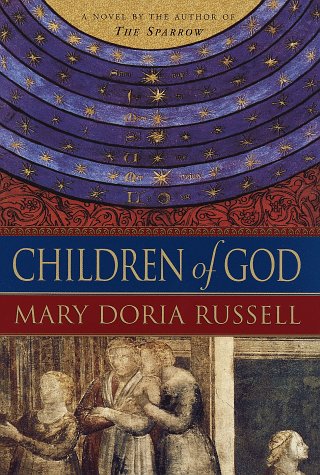Reviewed by empressbrooke on
I didn't connect with anyone the way I completely fell in love with all the characters in The Sparrow. Sean Fein, Danny Iron Horse, Joseba Urizarbarrena - they were all completely interchangeable. I couldn't tell you who did what or who had which characteristics. There was an overweight pilot as well, and I'm not sure why he was in the book at all except for the ship to have a pilot.
I didn't buy the reasons for sending Emilio back to Rakhat. None of them held up under scrutiny, and nothing happened on Rakhat after his return that absolutely required his presence. It all seemed like a bunch of faux-concern for Emilio's soul just so Russell could write another book.
There were far too many scenes from the VaRahkati point of view, and dear lord did they drag on. So much time was spent going over the specifics of their civil war; for some reason Russell decided to place a conversation between Danny Iron Horse and a Runao before they actually arrived on Rakhat so that she could squeeze in an explanation of 20 years' worth of change that had occurred on Rakhat. The Sparrow was about a man's spiritual journey, and that was lost in the sequel's massive focus on the VaRakhati war.
Finally, it was just really unnecessary. The Sparrow was emotionally brutal and that's part of what made it so impressive. This sequel neuters that brutality, and while it's nice seeing Emilio having some happy moments, The Sparrow made sense as it was - it told a story in a way that it needed to be told.
Reading updates
- Started reading
- 10 February, 2009: Finished reading
- 10 February, 2009: Reviewed
